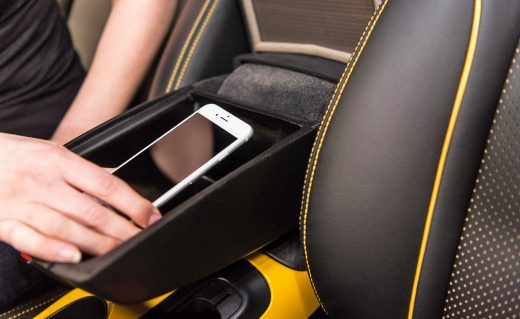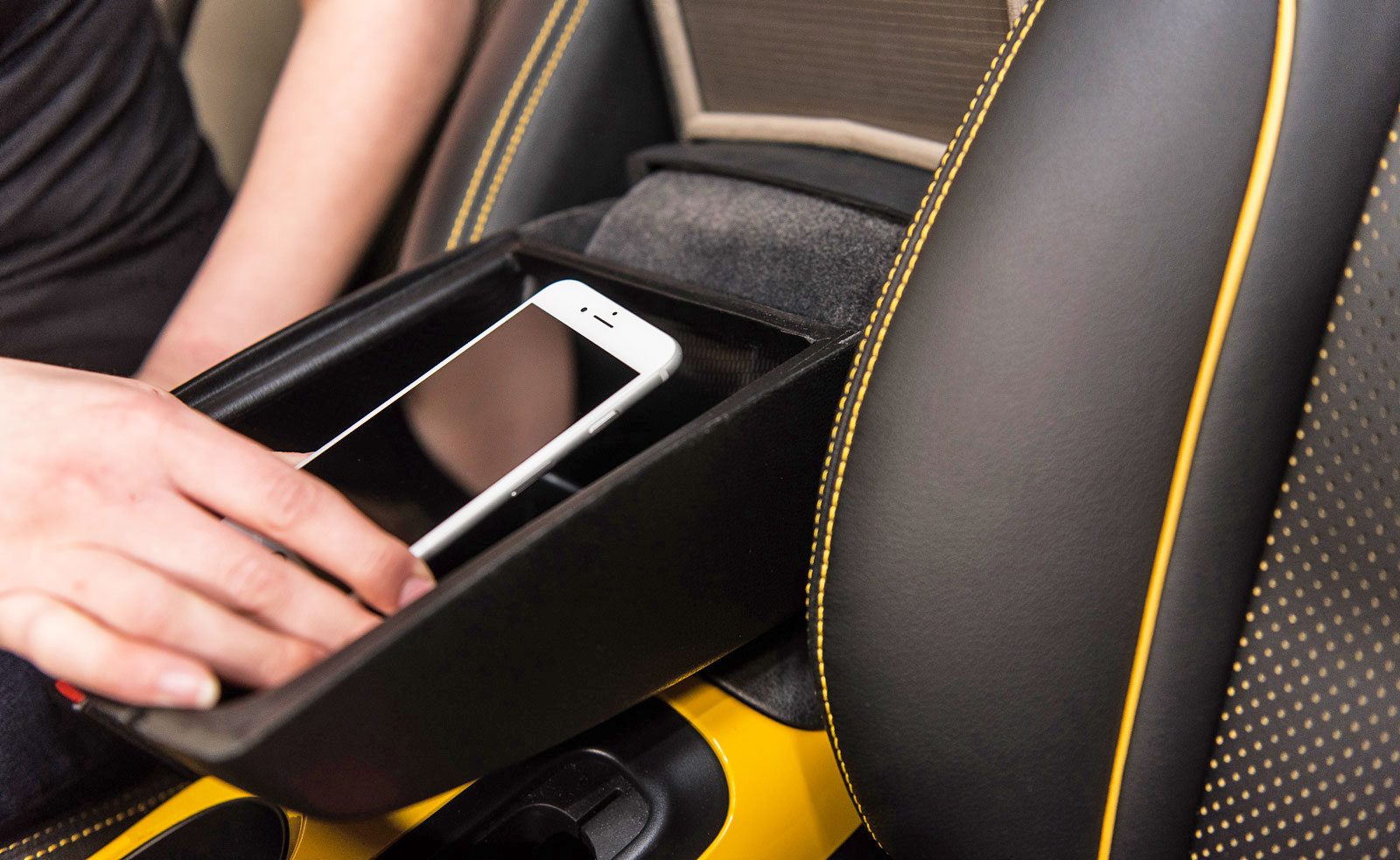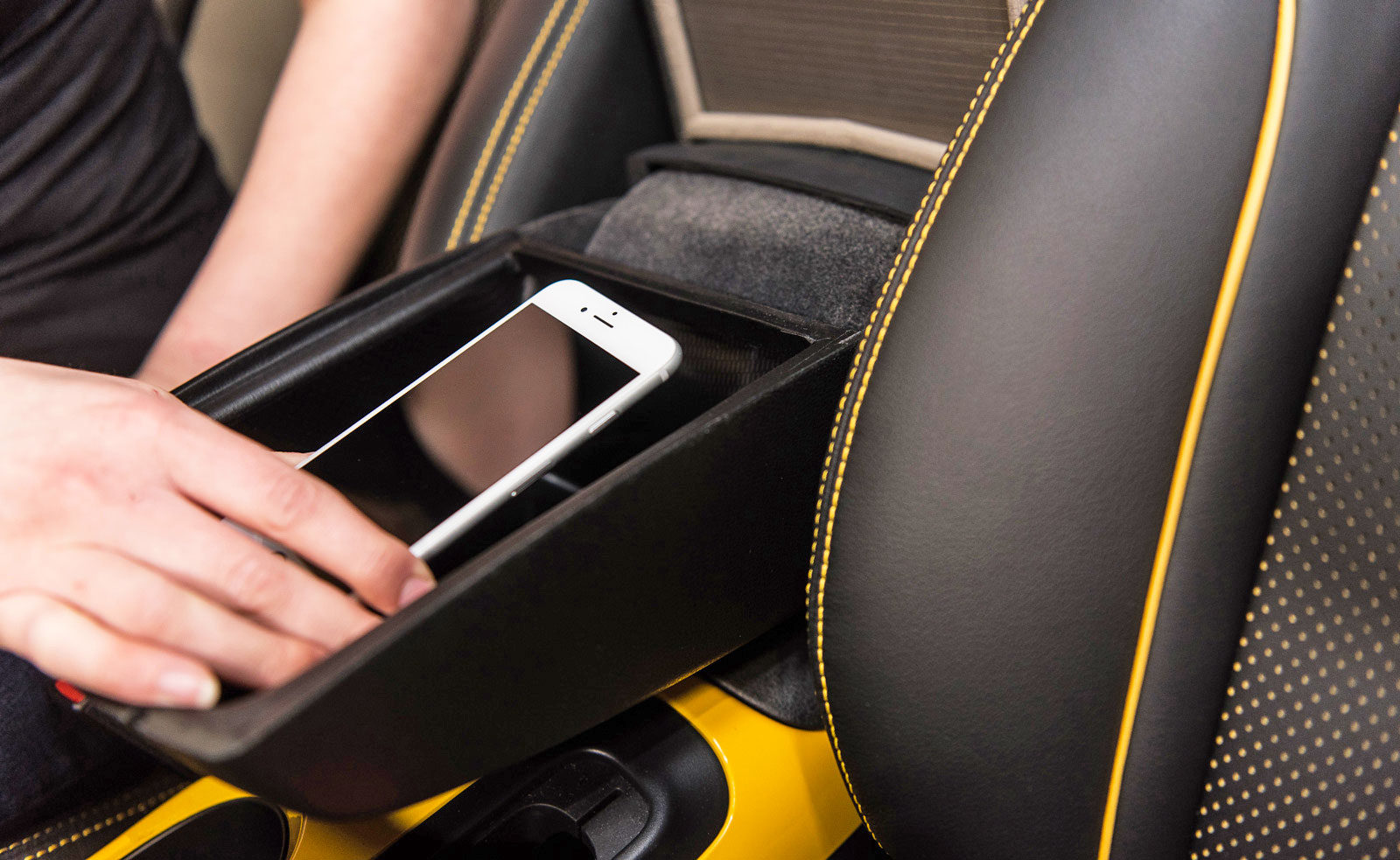Nissan imagines Faraday cages in cars will stop phone use
Despite the many tools developed to help us down our phones while driving — from the simple Bluetooth headset to apps that automatically reply to texts — it appears we just can’t stop fiddling with the things when we’re behind the wheel. And even if your eyes are fixed on the road, barking hands-free voice commands can still render you dangerously distracted. Simply ignoring your phone is the most sensible thing to do, and Nissan has come up with the most elaborate, over-engineered way of ensuring that happens: Putting a Faraday cage inside the driver’s armrest.
Using Michael Faraday’s 19th century discovery that a cage of conductive material will stop electromagnetic fields from crossing the threshold, Nissan created its concept “Signal Shield.” Masquerading as a driver’s armrest for a Nissan Juke, the cage surrounds the internal storage compartment. Slip your phone in there and cellular, Bluetooth and WiFi signals won’t be able to reach it, disconnecting it completely from the outside world and making the vehicle a “phone-free space” — though Nissan says you can still get at your tunes by feeding a USB or aux cable in there.
Smartphone distraction is a very serious issue, of course, but there’s a reason Nissan’s Signal Shield is unlikely to progress any further than the current concept stage. Because if people won’t go to the trouble of actually using their phone’s ‘do no disturb’ mode, then they’re just as unlikely to cut themselves off by way of armrest Faraday cage.
(59)





